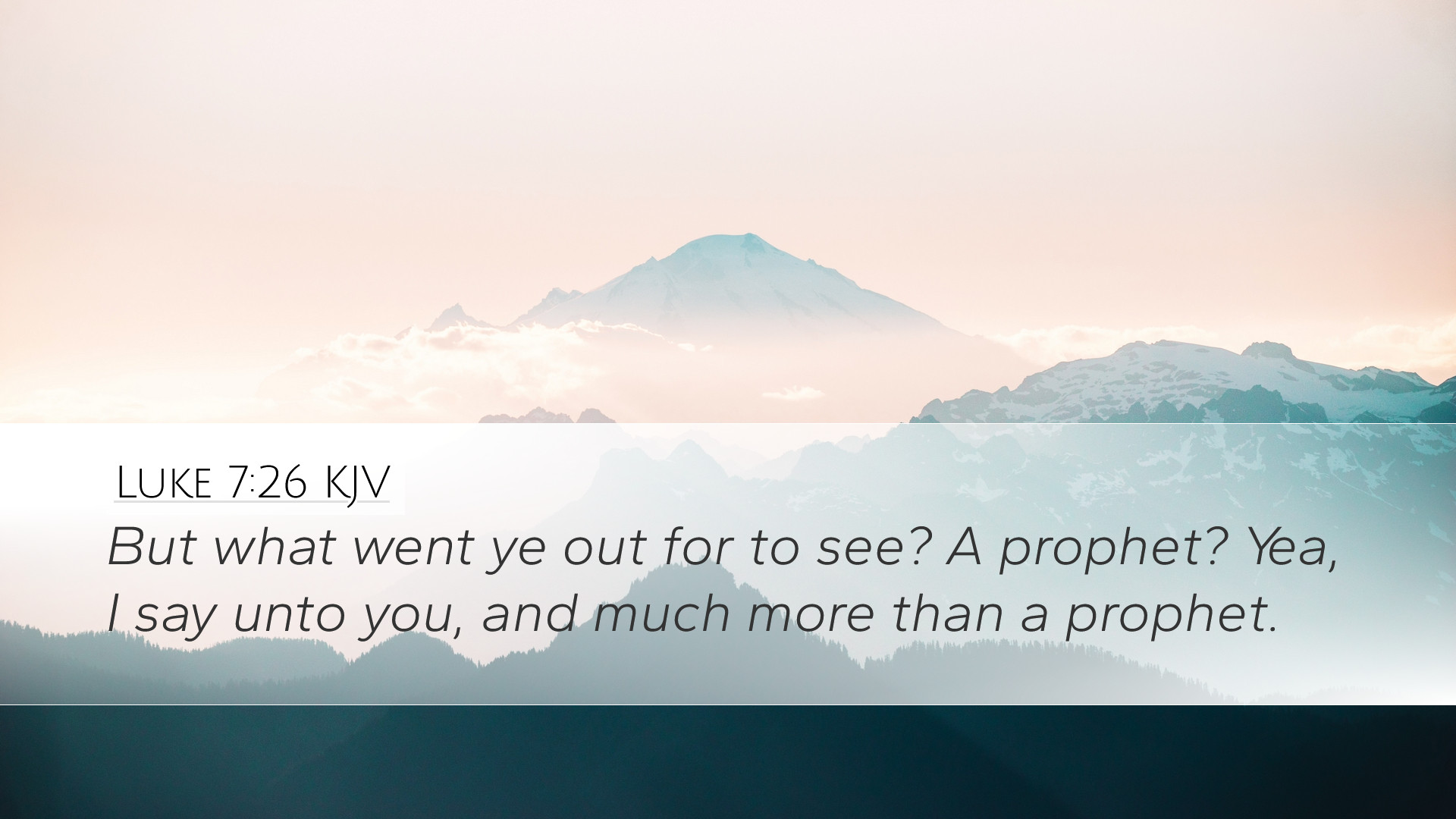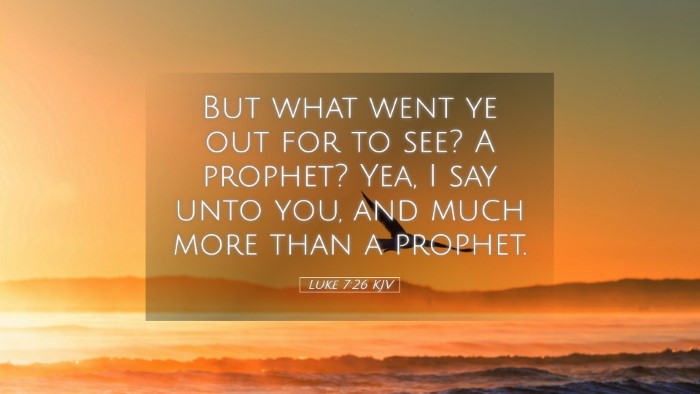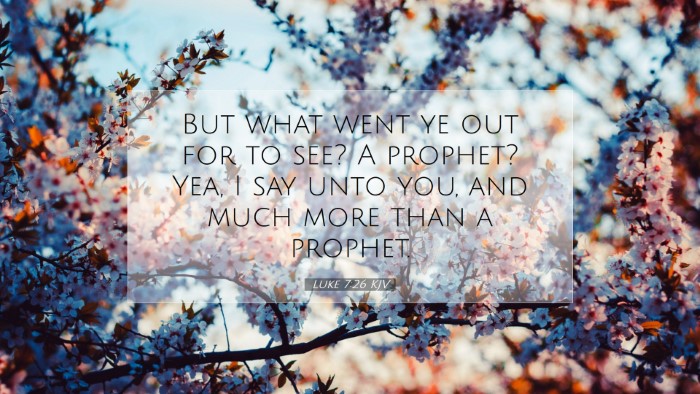Old Testament
Genesis Exodus Leviticus Numbers Deuteronomy Joshua Judges Ruth 1 Samuel 2 Samuel 1 Kings 2 Kings 1 Chronicles 2 Chronicles Ezra Nehemiah Esther Job Psalms Proverbs Ecclesiastes Song of Solomon Isaiah Jeremiah Lamentations Ezekiel Daniel Hosea Joel Amos Obadiah Jonah Micah Nahum Habakkuk Zephaniah Haggai Zechariah MalachiVerse
Luke 7:1 Luke 7:2 Luke 7:3 Luke 7:4 Luke 7:5 Luke 7:6 Luke 7:7 Luke 7:8 Luke 7:9 Luke 7:10 Luke 7:11 Luke 7:12 Luke 7:13 Luke 7:14 Luke 7:15 Luke 7:16 Luke 7:17 Luke 7:18 Luke 7:19 Luke 7:20 Luke 7:21 Luke 7:22 Luke 7:23 Luke 7:24 Luke 7:25 Luke 7:26 Luke 7:27 Luke 7:28 Luke 7:29 Luke 7:30 Luke 7:31 Luke 7:32 Luke 7:33 Luke 7:34 Luke 7:35 Luke 7:36 Luke 7:37 Luke 7:38 Luke 7:39 Luke 7:40 Luke 7:41 Luke 7:42 Luke 7:43 Luke 7:44 Luke 7:45 Luke 7:46 Luke 7:47 Luke 7:48 Luke 7:49 Luke 7:50

